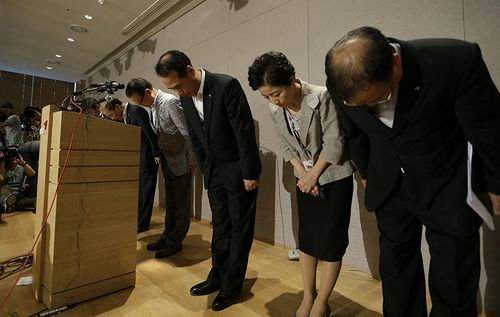Asiana Airlines' Apology and Other Communications
/After the Asiana Airlines crash over the weekend that left two dead and many injured, executives are keeping the public informed and are making their apologies. Some of these communications reflect the company's Korean culture.
A Washington Post article describes the board members' "deep, solemn bow" at the end of a news conference in Seoul. Of course, this is an obvious difference in culture from how American executives would behave, but the author explains that the cultural difference is more than just that.
The article reviews the history of businesses such as Asiana Airlines and the importance of trust:
"Part of it has to do with the way South Korea's economy grew: with a heavy guiding hand from the state. The government helped a number of once-small companies consolidate into massive conglomerates known as chaebols, which are often family-run and have since accumulated tremendous political and economic power.
"In some ways, chaebols are a lot like American multinationals: economic behemoths with heavy influence. But, in part due to the way they grew and the state's role in fostering them as national symbols, perhaps as well as some Confucian cultural influence, they operate in some ways like family businesses. And they're treated as such by many employees and by South Korean consumers. According to a 2005 article on chaebols in the Journal of Consumer Psychology, 'Korean consumers have a strong attachment to chaebols with which they associate quality and, in turn, trust,' with the chaebols serving as a kind of extension of Confucian ideals of the family. That means consumer loyalty to the brand but also brand responsibility for the consumer: hence, bowing to ask forgiveness."
The company posted periodic press releases as news about the crash unfolded.
Discussion Starters:
- In addition to the obvious word-wrap issues in the press releases, what word choices, tone, or other aspects of the statements might you attribute to cultural differences?
- Compare this story to the PBS News Hour analyzing cultural communication in the Toyota CEO's news conference in 2010.



